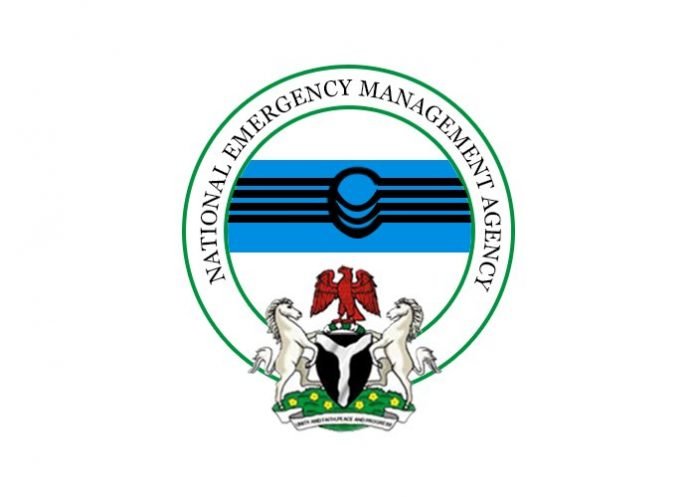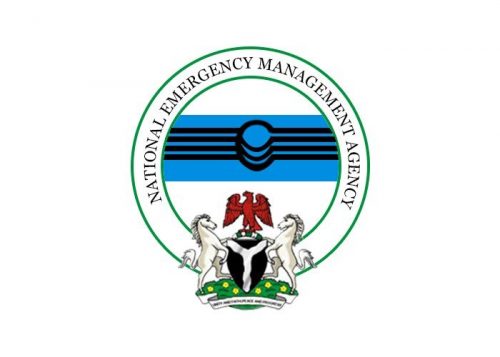
The National Emergency Management Agency and the National Hydrological Services Agencies have warned that 12 states across the country would soon experience flooding due to torrential rain falls.
The two agencies gave the warning on Friday during an emergency stakeholders’ meeting held with relevant stakeholders in Abuja.
Mr Clem Nze, Director, Engineering Hydrology, NHISA, listed the states to include: Kogi, Kebbi, Niger, Kwara, Edo, Anambra, Rivers, Bayelsa and Delta states, from the River Niger axis.
He also listed Taraba, Benue and Adamawa as states to be affected from the River Benue axis.
The expert also warned that the flood might be eminent, noting that all the indices that played out before the 2012 flooding had already manifested.
He said that the decision to raise the alarm was to ensure preparedness among stakeholders and residents of flood-prone communities.
Nze revealed that as at Friday, the height of River Niger in Lokoja was at 10.1 meters as against the 9.74 meters in 2012, adding that the continued to rise on hourly basis.
The director said that that the water levels were increasing due to the opening of the Shiroro, Kanji and Jebba Dams.
“As at today, our hydro-logical measuring station downstream the confluence in Lokoja recorded a stage height of 10.1m and a discharge value of 21, 326 cubic metre per second.
“As against lower values of 9. 74m and 19,762 cubic meters per second recorded on the corresponding date of 2012 when the flood occurred.
“From the foregoing, it could be said that all the indices that caused the 2012 river flooding have manifested, except spillage of water from the Lagdo Dam,“ he said.
“It would be noted that it was on September 29, 2012 that the maximum flood level of 12 .840m and the corresponding discharge of 31,692 cubic meters per second were recorded at our station in Lokoja, downstream the confluence.
“By the 2018 Seasonal Rainfall Prediction released earlier in the year, September 28 is the earliest cessation date of rainfall in Sokoto and Katsina while December is the earliest cessation date for the southern coastal cities.
“The implication of this is that, the northern part of the country should be expecting more rains in the next three weeks.’’
Earlier, Mr Mustapha Maihaja, Director-General, NEMA said that the emergency meeting was called following the update on the flood situation received from NHISA and described the development as alarming and urgent.
He said that the meeting would also review the situation with a view to classifying the possible dangers, assess preparedness at individual and collective levels.
Maihaja said that this was to ensure that every relevant agency was ready for any eventuality, if the water level keeps increasing.
“This is a serious meeting; we must put heads together to first classify the situation, whether it is still yellow or red.
“If it is red, surely we should act and part of the acting is the suggestion to set up a committee of five groups of three personnel from various sector to visit the front line states.
“It is for them to meet with the officials, go down to the villages that are really critically under threat and use all avenues to enlighten them.
“To invigorate our enlightenment campaign electronically and physically to ensure that everybody is well informed as required by the law.
“Secondly, we access our preparedness, informing our stakeholders so that wherever there is any equipment that is required, it is ready for deployment, should anything happens,’’ Maihaja said.
He called on state governments to provide alternative accommodation for those in the flood affected areas so that they do not camp in schools, especially as the schools are now in session.
The News Agency of Nigeria reports that stakeholders from the Nigerian Meteorological Agency, Ministries of Environment, Water Resources, Education, Health and Agriculture attended the meeting.
Other stakeholders present include representatives from the Defence Headquarters, Federal Fire Service, Nigeria Security and Civil Defence Corp, relevant UN agencies and other international organisations.
The stakeholders affirmed their preparedness to swing into action in the case of any flood disaster in any part of the country.



Comment here